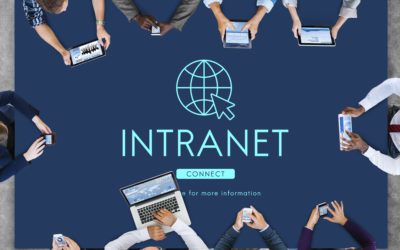 According to recent reports from CIO magazine, cybersecurity is still the number one concern in keeping IT managers up at night. With historically high labor shortages for cybersecurity talent, you may wonder, does it make sense for my company to contract with a virtual chief information officer (vCISO)?
According to recent reports from CIO magazine, cybersecurity is still the number one concern in keeping IT managers up at night. With historically high labor shortages for cybersecurity talent, you may wonder, does it make sense for my company to contract with a virtual chief information officer (vCISO)?
For a growing number of companies, that answer is yes. At Integris, our national network of vCISOs has helped dozens of companies harden their cybersecurity posture and create new growth opportunities. Still, your company does need to meet a certain threshold to truly need a vCISO’s services. This article will outline what triggers the need to hire senior cybersecurity leadership and how a vCISO can help you do that affordably and efficiently.
But first, let’s get into what a vCISO does and how that separates them from the average cybersecurity professional.
What is a vCISO, and How Can They Benefit Your Company
vCISOs are not service technicians. They are highly qualified IT leaders, akin to a CIO-level director whose focus is specifically cybersecurity. Qualifications for a vCISO usually start with a bachelor’s and/or master’s degree in IT, Computer Science, Cybersecurity, Information Systems, Risk Management, or a relevant degree. Additionally, vCISOs are required to have certifications to demonstrate that their cybersecurity expertise is up to date. Most will have a CISSP Certification (Certified Information Systems Security Professional) or another relevant credential such as a CISM (Certified Information Security Manager) or CISA (Certified Information Systems Auditor).
They can help you:
- Conduct a thorough cybersecurity assessment for every facet of your operations
- Recommend the right mix of cybersecurity tools and processes
- Write your cybersecurity policies, plans, and procedures and keep them updated as your infrastructure changes
- Write your yearly cybersecurity work plan and set your budget
- Handle cybersecurity reporting to your C-suite, regulators, and cyber-risk insurers
- Manage the regulatory audit process for your company
- Continuously review your system monitoring and patching, looking for emergent risks
- Recommend cybersecurity training programs for your people
And so much more. Because they’re offered part-time, you can create a retainer explicitly tailored to your organization’s size, budget, and compliance load.
It’s a combination of services that are very attractive to small and mid-sized companies. Here are some of the triggers to look for to know you’re ready for the benefits a vCISO can provide.
The Top Signs Your Organization Might Be Ready for a vCISO
#1—You Lack the Internal IT Resources to Focus on Cybersecurity
Does it seem like you’re drowning in the daily tasks of running your IT infrastructure? For many organizations, it’s challenging to focus on the larger cyber security questions when you can’t get out from underneath your daily obligations.
This can be just as much of a problem for small companies as it can be for growing midsize companies. If you can’t complete important tasks like PEN testing, cybersecurity training, or monitoring and patching reports, it may be time to look for a vCISO’s leadership.
#2—You Can’t Find/Afford a Full Time Internal CISO
Many small to midsize companies have a significant cybersecurity leadership vacuum. Yet, they don’t have enough work to justify hiring a full-time, fully qualified chief information security officer. That hire could be a giant line item for your organization, with salaries for CISOs averaging about $195,000 to $345,000 per year, according to the latest numbers from Glass Door.
To add to the problem, trained CISOs are hard to find. The global shortage of cybersecurity workers is estimated at 3.5 million, according to the latest report by the National Institute of Science and Technology (NIST). This shortage could even be more acute if your company is located outside of major tech centers.
Hiring an MSP with vCISO consulting services can be the perfect option in this scenario. You’ll get a scalable solution by paying for the part-time help of a virtual chief information security officer. You’ll get all the benefits without the overhead.
#3—You Struggle with your Regulatory Reporting and Audits
If you are in a vertical such as health care, manufacturing for the government, or banking, you are already well acquainted with the high bar regulators have set for your cyber security audits. It may be tempting to hire for a few consulting hours around these audit periods. We don’t recommend this. Why? Because your compliance operation can only run optimally with month-to-month, year-over-year, and consistent cybersecurity leadership. Having a vCISO on retainer ensures that your cybersecurity operation runs smoothly and that emerging threats and issues are dealt with as they happen.
When it’s time for your audit, your cyber security will already be optimized around your compliance, and the reporting you’ll need will be right at your fingertips. Better yet, you’ll have a high-end security expert who understands your operations inside and out and works with your regulators.
#4—Customers, Vendors, and Potential Customers Are Consistently Asking for Proof of Your Safe Cybersecurity Practices
Companies often think of cybersecurity as something they “have to do.” But have you considered the role cyber security can play in building your business opportunities?
If customers, vendors, or prospects are asking you about your cyber security posture, a vCISO can help you come armed with all the answers you need. When you provide proof of the safety of your data and operations, you may find yourself suddenly able to pitch business you weren’t able to pitch before. You may be able to work with vendors that are far larger and more sophisticated than you’ve worked with in the past. You might even be able to open whole new market paths for your company because your operations are compliant in new, highly regulated verticals.
A vCISO could be an investment that pays real, tangible benefits.
#5—You Have Trouble Applying or Qualifying for Cyber Risk Insurance
If your company does business online, you need cyber risk insurance. This goes double if you work in an industry that handles sensitive customer data or data protected by regulation, like HIPAA. Yet, if your cybersecurity posture is weak, or you don’t have good policies and governance, cyber risk insurers may reject you out of hand.
A qualified vCISO can help you prepare for a cyber risk insurance review. Here at Integris, we typically refer our customers to reputable insurers, recommend the level of insurance they need, and provide all the necessary legwork to apply. Their expert understanding of the insurance market can help you get the right coverage match, saving you money while mitigating your risk.
#6—Your Written Cybersecurity Policies and Procedures Are Always Out of Date
Documentation is the area most likely to be neglected in the average busy organization. It’s also the area where regulators find the most mistakes and omissions.
A vCISO can fast-track the documentation process for you. They generally have libraries of sample policies, plans, and procedures that they can quickly customize to fit your needs. When you work with them regularly, they’ll ensure your documentation is updated whenever there is a change in procedure or a new tool is added that changes the game. You’ll never have to worry that your processes and policies aren’t defined. And that does wonders for the smooth operation of your IT enterprise.
#7—Your Business Is Expanding, Especially into Areas with a High Regulatory Load
You’ve just landed a whole raft of new clients in a brand-new industry. Great! But are your systems up to the cyber security requirements for handling client data? What seems like a simple client onboarding has now turned into major safety and infrastructure questions.
Rapid growth can send your IT team into disarray. A vCISO can step in quickly and create order from the chaos. You can choose an expert in your relevant industry verticals so you can stay one step ahead of your new client’s needs.
#8—You Don’t Have an Adequate Backup and Disaster Response Plan
When your company is small, it’s easy to fall back on the backup protections offered by your cloud or SaaS providers. Over time, you’ve grown and added more backup as you go. But are all your systems truly protected?
In the event of a disaster, outage, or cyberattack, how quickly could you retrieve your data? Would you lose large quantities of data? Is all that data centrally available? Is your cloud backup procedure compliant with regulatory rules? If the worst happens, are there written procedures so your staff and vendors know what to do?
It’s not enough to simply have backup. Your company needs a full, comprehensive disaster recovery plan. A vCISO gets into the trenches, working to understand how your backup and disaster response plans work together and how they would function if tested. They can help ensure your systems are prepared for anything that comes your way.
Are You Ready to Take the Next Step?
If you think your company is a good candidate for vCISO services, we’d love to help. Contact us and schedule a free consultation!



